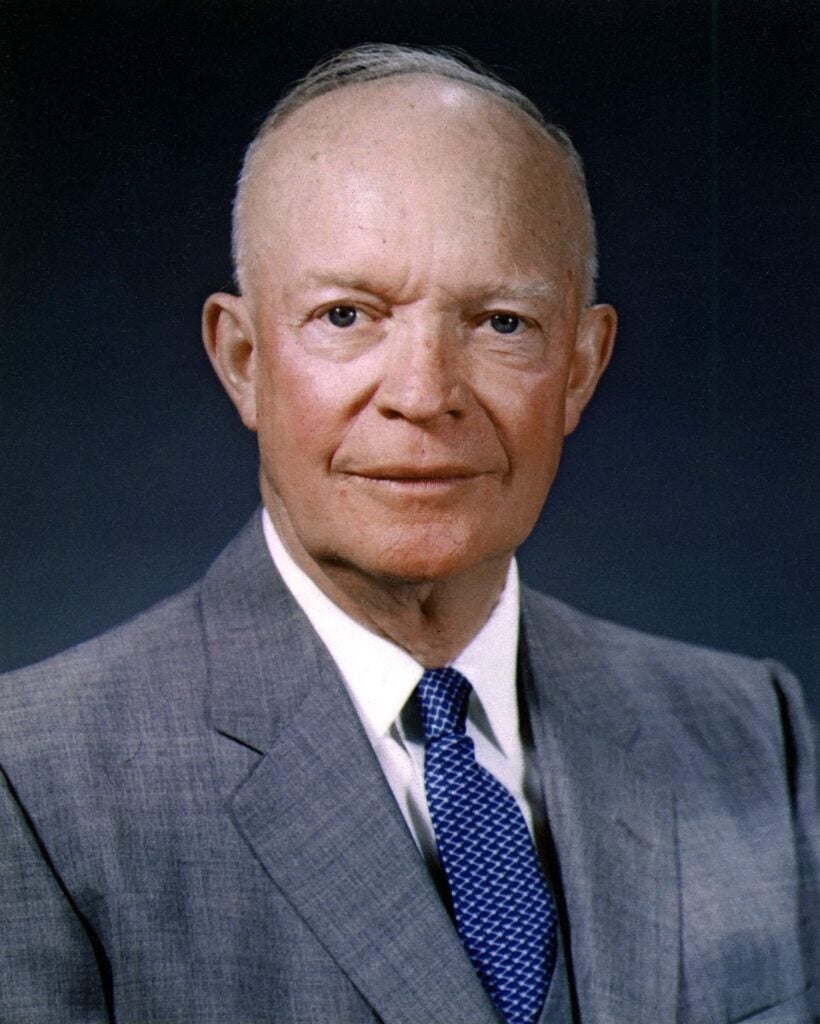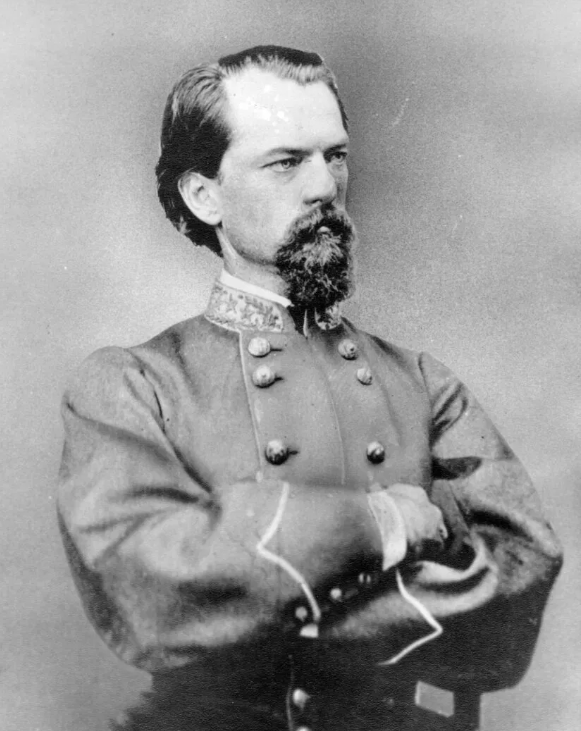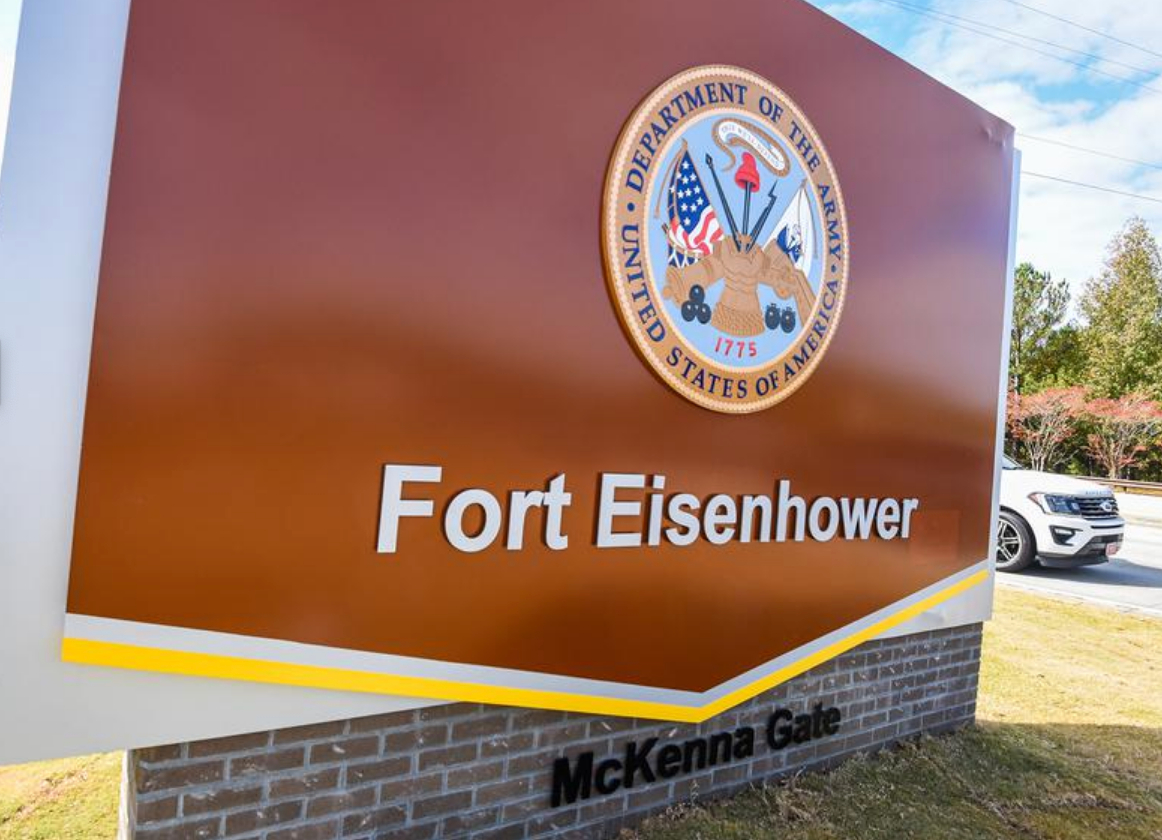President Donald Trump announced Tuesday that he has ordered the names changed on seven military installations including Fort Eisenhower.
In a seemingly off-the-cuff statement to soldiers stationed at Fort Bragg, Trump announced that several recently renamed forts will revert to their former names, which honored former Confederates. Along with Fort Gordon, Fort Pickett, Fort Hood, Fort Gordon, Fort Rucker, Fort Polk, Fort A.P. Hill, and Fort Robert E. Lee will revert to their former moniker.

“We’ve won a lot of battles out of those forts. It’s no time to change. And I’m superstitious. You know, I like to keep it going, right? I’m very superstitious. We want to keep it going?” Trump said.
Trump was in North Carolina celebrating the U.S. Army’s 250th anniversary when he made the announcement; however, he didn’t elaborate on whether he would make the change by executive order or if he would need the approval of Congress.
According to the U.S. Army, Fort Gordon will now be named after Master Sgt. Gary I. Gordon, a medal of honor recipient who was recognized for his bravery during the 1993 Battle of Mogadishu, Somalia.
“Gordon volunteered to be inserted to defend wounded crew members at a helicopter crash site and held off an advancing enemy force, protecting the pilot after exhausting all his ammunition,” said a press release from the U.S. Army.
Fort Gordon was changed to Fort Eisenhower, honoring the 34th president and hero of World War II, who spent quite a bit of time in Augusta and was a celebrated member of the Augusta National. In 2023, the name on the fort was changed on the order of the Biden administration based on a law passed by Congress at the suggestion of the Naming Committee in 2021.
At the time, the Pentagon estimated the cost of the name change for Fort Gordon to be around $580,000 or over $62 million for all of the bases affected.
Statement from Mayor Johnson
Augusta Mayor issued the following statement on the name change:
“Fort Eisenhower is a cornerstone of strength, service, and stability in the Central Savannah River Area. The installation enriches our community, bolsters our local economy, and connects us to the brave servicemembers and families who call this region home.
While we believe the Fort Eisenhower name was a fitting tribute, given President Dwight D. Eisenhower’s deep personal connection to Augusta. At the same time, we are proud to honor the legacy of Fort Gordon’s new namesake, Master Sergeant Gary I. Gordon. A true American hero and Medal of Honor recipient, Master Sergeant Gordon’s valor and sacrifice during the Battle of Mogadishu represent the highest ideals of service. His name carries great meaning, and we are honored to have his legacy forever tied to our region.
None the less, our commitment to the installation remains steadfast, regardless of its name. Fort Eisenhower continues to be a vital part of Augusta’s identity and plays an essential role in national defense, cybersecurity, and innovation. We are proud of the enduring partnership between the City of Augusta and the installation, and we will continue to support our military community with unwavering dedication.
Together, we look ahead with deep respect for the past, confidence in our shared future, and gratitude for all who serve.”
History of Fort Gordon name

Fort Gordon was originally named after Confederate Ly. Gen. John Brown Gordon. It was designated from a camp to a fort in 1954 during Ike Eisenhower’s first term in the White House.
According to the New Georgia Encyclopedia, Gordon was “generally acknowledged as the head of the Ku Klux Klan in Georgia.” After Georgia’s statehood was restored, Gordon was appointed to the U.S. Senate in 1872 and helped negotiate the Compromise of 1877, which ended the contentious election that year by allowing Republican Rutherford B. Hayes the presidency in exchange for the demilitarization of the South.
As a candidate for president, Trump claimed on the campaign trail that the Biden policy of changing the name of military installations honoring former Confederates was bowing to DEI (diversity, equity and inclusion) ideology and vowed to reverse the policy if elected.
Scott Hudson is the Senior Investigative Reporter, Editorial Page Editor and weekly columnist for The Augusta Press. Reach him at scott@theaugustapress.com










